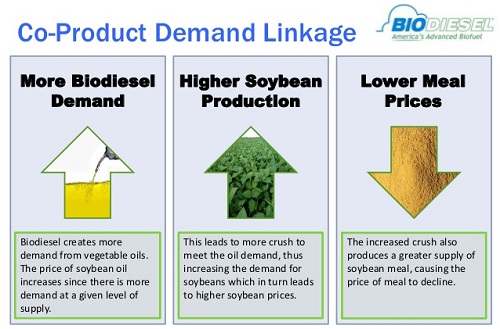As the world celebrated World Food Day yesterday, the folks at the National Biodiesel Board (NBB), along with their friends at the American Soybean Association (ASA), make the case that the biodiesel industry, soybean growers and livestock producers are an important part of the food chain.

“The world has a protein gap that needs to be filled,” said American Soybean Association World Initiative for Soy in Human Health Chairman Andy Welden. “Our crop offers soybean meal for livestock feed and human food, which at the same time, creates an abundant supply of soybean oil for biodiesel.”
October 16 is annually recognized as World Food Day. The 2014 Theme is Family Farming; Feeding the world, caring for the earth. The United States produces more than 3.2 billion bushels of soybeans a year, offering an abundant supply of meal for human foods and livestock feeds as well as oil for biodiesel and other uses. U.S. soybean growers also participate in support sustainability programs for conservation and other environmental practices.
NBB also pointed that increased biodiesel production benefits poultry and livestock farmers, as increased amounts of soy oil for biodiesel production also means more soy meal is available for livestock feed and human food. The group added that, according to the United Nations, 805 million people are estimated to be chronically undernourished in 2012–14. But that number is actually down more than 100 million over the last decade, in no small part because of the ASA’s World Initiative for Soy in Human Health (WISHH) that assists developing country entrepreneurs and leaders in filling the “protein gap” with nutritious soy-based foods as well as livestock and aquaculture feeds.
Along with reducing the cost of livestock feed, biodiesel also adds value to animal fats. In 2013 demand for fats and oils for biodiesel production increased the value of beef tallow an estimated $567 million, pork fat an estimated $165 million, and poultry fat by more than $51 million, making the production of animal protein more economical.

